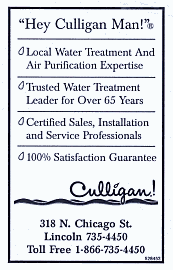|
"Human trafficking is a modern-day
form of slavery, and sadly it exists here in Illinois," said Gov.
Blagojevich. "Young children, teenagers, men and women are promised
jobs and better lives and are brought to the United States. But once
they're here, they are forced to live and work in abysmal
conditions, they're paid pitiful wages, and some are forced into the
sex trade. Our Rescue and Restore campaign will help law enforcement
officers, health care workers and social worker spot victims of
human trafficking so we can help them rebuild their lives."
Human trafficking is the fastest growing criminal industry in the
world today. According to the U.S. State Department, each year
approximately 800,000 to 900,000 victims are trafficked across
international borders, and between 18,000 and 20,000 of those are
brought into the United States. The New York Times, in a January
2004 magazine article, labeled the Chicago area a national hub for
human traffickers.

One victim, Hannah, was brought to Chicago from Africa when she
was 10 years old and was forced to cook, clean and take care of
three small children. She was not allowed to go to school or even go
outside and was verbally, physically and sexually abused. Once
Hannah finally escaped and sought help, she was again held captive
by a man who sexually assaulted her and forced her to do housework
for him. The young girl eventually escaped and got help from the
Heartland Alliance program to counter trafficking.
In Rockford, federal and local agents found several undocumented
Chinese and Korean women locked down in area spas two weeks ago. The
women, who were probably trafficked into the United States, lived
and worked in desperate conditions, and were not allowed to leave
the spas. Some of the women became prostitutes under the direction
of the spa managers. Sadly, these women, now under arrest, will
likely be deported.
"Human trafficking is a hidden phenomenon in Illinois that needs
to be exposed for the terrible crime that it is," said Department of
Human Services Secretary Carol L. Adams, Ph.D. "One case is one case
too many, and it's imperative that we act now to eliminate this
human suffering."
The governor has directed the Department of Human Services, the
Illinois State Police, Department of Children and Family Services,
Department of Labor, and Department of Human Rights to team up with
the U.S. Department of Health and Human Service and Chicago's
Heartland Alliance to organize the Rescue and Restore campaign.
Rescue and Restore is a federal, state and local partnership
designed to inform the public of human trafficking and to uncover
victims and refer them to the available resources.
"The federal government welcomes the opportunity to work in
partnership with Illinois to address the tragedy of human
trafficking," said Steven Wagner, of the U.S. Department of Health
and Human Services. "Illinois would be the first state to dedicate
this level of statewide resources to this problem. With Governor
Blagojevich's involvement, the Illinois Rescue and Restore Coalition
will become a national model in the fight against human
trafficking."
[to top of second column in this article]
 |
 Gov. Blagojevich said organizations throughout the state will be
invited to join the Illinois Rescue and Restore campaign, slated to
begin in late spring. Participating state agencies will send a
mailing later in the week to a list of approximately 1,000 health
care, social service, and law enforcement agencies and associations
that have contact with immigrants and victims of sexual assault or
domestic violence, inviting them to join the coalition. The Illinois
coalition will then provide the participating agencies with
informational posters to display on their premises and will train
potential "first responders" -- such as law enforcement officers,
health care workers and social workers from the agencies -- to help
spot possible victims and direct them into federally funded victim
services.
"Trafficking for sexual exploitation and forced labor is a hidden
reality in Illinois that is simply unacceptable," said Joseph A.
Antolin, vice president of Heartland Alliance for Human Rights &
Human Needs, a service-based human rights agency in Chicago.
Katherine Kaufka, an attorney with Heartland's Midwest Immigrant
and Human Rights Center, added, "State law to further provide tools
to law enforcement personnel, coupled with training and alertness by
service and health providers, will be essential to identifying and
assisting victims."

Once victims are identified, they are referred to Chicago's
Heartland Alliance for certification of victim status. Certified
trafficking victims are granted access to federal benefits and
services through a special T-visa. Inquiries about the victim
certification process and past successes rescuing and certifying
victims should be made to Katherine Kaufka at the Heartland
Alliance, (312) 660-1311. There is also a federally administered
toll-free 24-hour victim referral line, 1 (888) 373-7888.
"The federal government has begun to address the problem of human
trafficking, allowing victims to gain asylum and funding relief
efforts," said state Sen. John Cullerton, D-Chicago, chief sponsor
of Senate Bill 477. "Now it is time for states to work with
Washington to eradicate this perverse activity."
"Human trafficking is a worldwide crime that crossed our state's
borders long ago," said state Rep. Michelle Chavez, D-Cicero.
"Thousands, maybe even millions, of desperate, innocent people are
exploited and forced into different types of slavery every day.
These victims need us, as a state, to complement federal and
international efforts to put an end to their torment."
The proposed legislation would define human trafficking crimes
and create criminal offenses and penalties, making it easier for
prosecutors to charge those involved in human trafficking rings. The
penalty for forcing a person into servitude would range from a Class
4 to a Class X felony if the victim is kidnapped or injured. The
bills allow for restitution to pay back a victim for forced labor.
The bills also expand potential resources available to victims by
allowing the Illinois Department of Human Services to provide
emergency victim services.
[News release from the governor's
office] |

